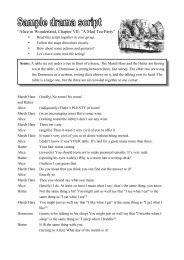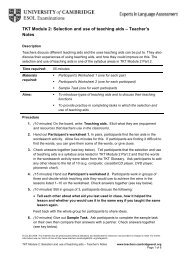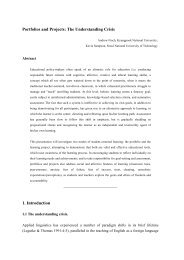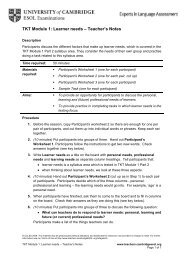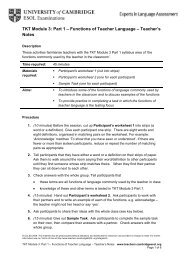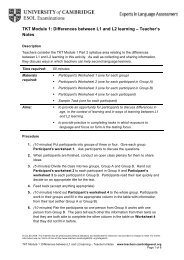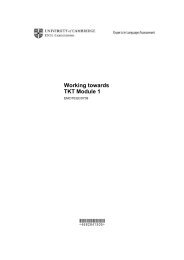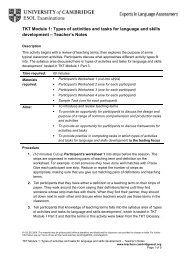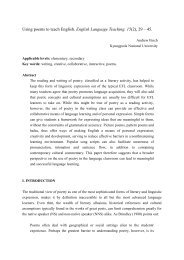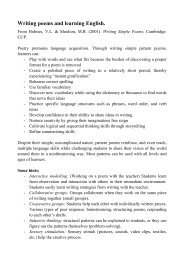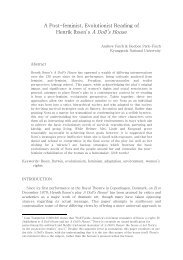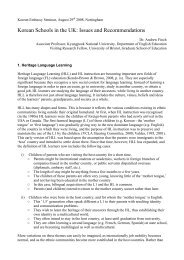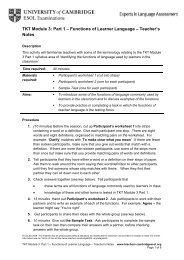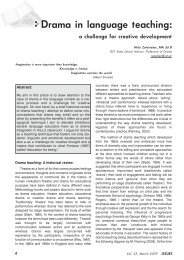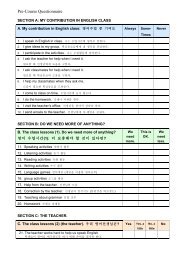Scope magazine - Finchpark
Scope magazine - Finchpark
Scope magazine - Finchpark
You also want an ePaper? Increase the reach of your titles
YUMPU automatically turns print PDFs into web optimized ePapers that Google loves.
COMPARE & CONTRAST GENRE<br />
Comedy Versus Tragedy<br />
GET TO KNOW THE LAUGHTER AND TEARS BEHIND SHAKESPEARE’S PLAYS<br />
As you may have noticed from the adaptation of Romeo and Juliet, William Shakespeare knew how to make people cry.<br />
The Bard also loved to make people laugh. Of his 37 plays, at least 12 were comedies and 10 were tragedies. In Shakespeare’s<br />
day, comedies and tragedies were theatrical forms with specific characteristics. Find out more about these two genres.<br />
photofest(2); istockphoto.com(masks)<br />
Comedies<br />
Kevin Kline and<br />
Michelle Pfeiffer in the<br />
comedy A Midsummer<br />
Night’s Dream.<br />
PROTAGONISTS: The main characters are usually<br />
a young couple that must overcome an obstacle.<br />
PLOT: In the characters’ pursuit of love, they get<br />
mixed up in all sorts of complicated predicaments.<br />
TONE: Comedies treat heavy subjects lightly. The<br />
Bard used metaphors, insults, and puns to make the<br />
audience laugh and to make them think more deeply.<br />
LOVE TRIANGLES: A love triangle happens when<br />
two people have a crush on the same person. In A<br />
Midsummer Night’s Dream, a love triangle starts a plot<br />
involving fairies, hasty getaways,<br />
magic, and a donkey—seriously!<br />
MISTAKEN IDENTITIES: Confusing<br />
one character for another leads<br />
to many mishaps. For example, in<br />
Shakespeare’s Twelfth Night, Viola<br />
pretends to be her twin brother in<br />
order to get a job. When her brother<br />
shows up, things get out of hand.<br />
ENDING: A comedy always ends well,<br />
usually with a marriage.<br />
Tragedies<br />
Write Now!<br />
Write a letter to Shakespeare<br />
explaining how he could change<br />
Romeo and Juliet into a comedy.<br />
Explain what things would have to<br />
change and what things could<br />
stay the same. For example,<br />
could you keep the same protagonists<br />
and plot turns Should<br />
some characters wear disguises<br />
How would the comedy end<br />
Kenneth Branagh and<br />
Kate Winslet in the<br />
tragedy Hamlet.<br />
PROTAGONIST: The main character is an admirable<br />
hero, but he has one fatal flaw that will destroy him.<br />
In King Lear, for instance, the King’s flaw is arrogance.<br />
His ego actually topples his entire kingdom.<br />
PLOT: Tragedies often deal with revenge, murder,<br />
war, doomed love, and political conspiracies.<br />
TONE: The audience feels powerless because<br />
the tragedy is usually avoidable. For example,<br />
if only Romeo had received the Friar’s letter, he<br />
and Juliet could have lived happily ever after!<br />
SUPERNATURAL BEINGS: Otherworldly<br />
creatures like witches and ghosts<br />
mean trouble. Hamlet, Macbeth,<br />
and Julius Caesar all have supernatural<br />
beings that spell catastrophe.<br />
BAD WEATHER: As a tragedy unfolds,<br />
society gets chaotic—and so<br />
does the weather. Killer storms<br />
and creepy mists are a clue that<br />
something bad is happening.<br />
ENDING: Most of the characters die.<br />
Scholastic <strong>Scope</strong> SEPTEMBER 7, 2009 13



